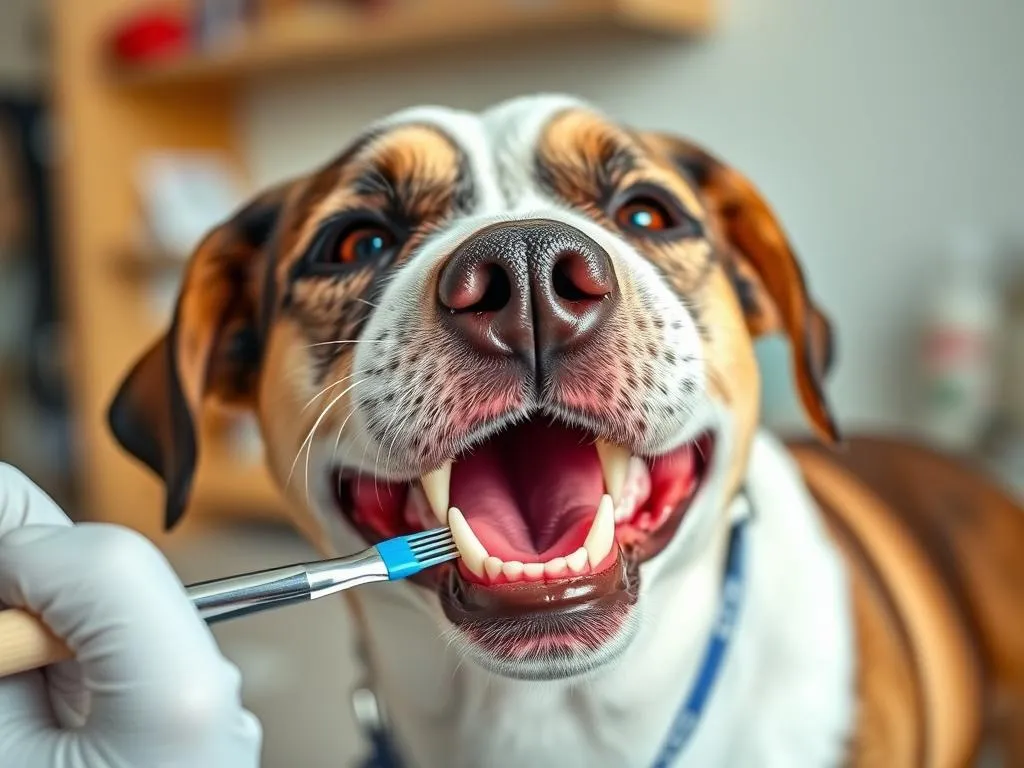
Introduction
Did you know that approximately 80% of dogs show signs of dental disease by the age of three? This startling statistic highlights a significant aspect of pet ownership that often goes overlooked: dog dental health. Just like humans, dogs require proper dental care to ensure their overall health and well-being. Neglecting your furry friend’s teeth can lead to serious health issues, including heart and kidney disease, as bacteria from the mouth can enter the bloodstream.
In this article, we will dive into the topic of whether dogs need their teeth brushed and explore the importance of maintaining their dental health. We will cover essential topics, including the anatomy of a dog’s mouth, common dental issues, the benefits of brushing, and alternative dental care options. By the end, you will have a comprehensive understanding of how to care for your dog’s teeth and the significance of incorporating dental care into their routine.
Understanding Dog Dental Health
Anatomy of a Dog’s Mouth
Understanding the anatomy of a dog’s mouth is crucial for effective dental care. Dogs have different types of teeth that serve various functions:
- Incisors: These are the small teeth at the front, used for nibbling and grooming.
- Canines: The larger, pointed teeth that help dogs tear food and defend themselves.
- Premolars: Located behind the canines, these teeth assist in grinding food.
- Molars: The larger teeth at the back of the mouth, which are primarily used for crushing and grinding.
A dog’s dental structure consists of 42 teeth in total, with a strong jaw that allows for powerful chewing. Each type of tooth plays a vital role in a dog’s diet, and maintaining their health is essential for optimal function.
Common Dental Issues in Dogs
Unfortunately, many dogs suffer from various dental issues, including:
- Plaque and Tartar Buildup: Plaque is a sticky film of bacteria that forms on teeth. If not removed, it hardens into tartar, which can lead to more severe dental problems.
- Periodontal Disease: This is an infection of the tissues that support the teeth, often caused by plaque buildup. It can lead to tooth loss and pain.
- Bad Breath (Halitosis): Often a sign of underlying dental issues, bad breath can be distressing for both dogs and their owners.
- Tooth Decay and Loss: Just like humans, dogs can experience decay and eventually lose teeth if dental care is neglected.
Recognizing these issues early can save your dog from discomfort and more serious health complications.
The Importance of Brushing Dog Teeth
Benefits of Regular Teeth Brushing
Brushing your dog’s teeth is not just a matter of aesthetics; it offers numerous health benefits:
- Prevention of Dental Diseases: Regular brushing helps remove plaque before it hardens into tartar, significantly reducing the risk of periodontal disease.
- Improved Overall Health and Longevity: Dental issues can lead to systemic health problems, including infections in the heart and kidneys. Maintaining good oral hygiene can contribute to a longer, healthier life for your dog.
- Reduction in Bad Breath: Regular brushing can help keep your dog’s breath fresh, making snuggles and playtime more enjoyable.
Statistics and Studies
Numerous studies emphasize the importance of dental care for dogs. Research shows that dogs who receive regular dental care have a lower incidence of periodontal disease and other dental issues. A study found that dogs with unbrushed teeth are 3.5 times more likely to develop gum disease compared to those whose teeth are brushed regularly. These statistics underline the significance of establishing a consistent dental care routine for your furry companion.
Do Dogs Really Need Their Teeth Brushed?
Expert Opinions
Veterinarians and pet health organizations unanimously agree that dogs need their teeth brushed. The American Veterinary Medical Association (AVMA) recommends brushing your dog’s teeth at least two to three times a week. Regular veterinary check-ups often include dental assessments, highlighting the importance of proactive care.
Myths vs. Facts
Despite the overwhelming evidence supporting dental care, several myths persist regarding dog dental health:
- Myth: Dogs can clean their teeth naturally.
-
Fact: While dogs may chew on bones or toys, this is typically insufficient for effective cleaning and does not eliminate plaque buildup.
-
Myth: Bad breath is normal for dogs.
- Fact: While some odor is natural, persistent bad breath is often a sign of dental disease and should be addressed.
Clarifying these misconceptions is crucial for proper dog dental care and overall health.
How to Brush Your Dog’s Teeth
Choosing the Right Tools
Before starting a teeth-brushing routine, it’s essential to select the right tools. Here’s what you need:
- Dog Toothbrushes: Options include finger brushes, which are easy to use for beginners, and traditional brushes designed for dogs.
- Dog Toothpaste: Always use toothpaste specifically formulated for dogs. Human toothpaste can be harmful due to ingredients like xylitol. Dog toothpaste is available in various flavors that your dog will enjoy.
Step-by-Step Guide to Brushing
Brushing your dog’s teeth may seem daunting, but it can be a simple process:
-
Prepare Your Dog: Make sure your dog is comfortable. Choose a quiet place and allow them to sniff the toothbrush and toothpaste first.
-
Use Proper Technique: Lift your dog’s lip and gently brush at a 45-degree angle to the gum line. Focus on the outer surfaces of the teeth, where plaque accumulates the most.
-
Keep It Positive: Use praise and treats to make the experience enjoyable. This will help your dog associate teeth brushing with positive reinforcement.
Frequency of Brushing
For optimal dental health, it’s recommended to brush your dog’s teeth at least two to three times a week. However, daily brushing is ideal. If you notice signs of dental issues, such as increased plaque or bad breath, you may need to increase the frequency of brushing.
Alternative Dental Care Options
Dental Chews and Toys
In addition to brushing, dental chews and toys can help maintain your dog’s oral health. These products are designed to reduce plaque and tartar buildup while providing entertainment. Look for dental chews that have the Veterinary Oral Health Council (VOHC) seal of approval, indicating they have been tested for effectiveness.
Professional Dental Cleanings
Regular veterinary visits are crucial for maintaining your dog’s dental health. Professional cleanings allow veterinarians to remove tartar and assess your dog’s dental condition. During these visits, they can also identify any underlying issues that may require treatment.
Home Dental Care Products
Several home dental care products can complement your dog’s oral hygiene routine:
- Water Additives: These can be added to your dog’s drinking water to help reduce plaque and freshen breath.
- Dental Sprays and Gels: These products can be used as a supplement to brushing and may help reduce plaque buildup.
While these products can be effective, they should not replace regular brushing.
Maintaining Overall Dog Health
Nutrition and Diet
A balanced diet plays a significant role in your dog’s overall health and dental hygiene. Certain foods can help maintain healthy teeth and gums. Look for dog food that contains ingredients designed to promote dental health, such as:
- Kibble: Crunchy kibble can help reduce plaque as your dog chews.
- Raw Vegetables: Carrots and apples can provide a natural way to clean teeth.
Consult your veterinarian for specific dietary recommendations based on your dog’s age, size, and health needs.
Regular Veterinary Checkups
Routine veterinary visits are essential for comprehensive health assessments, including dental health. These check-ups allow for early detection of dental issues and other health concerns, ensuring your dog receives the necessary care.
Conclusion
In summary, the question of whether dogs need their teeth brushed is clearly answered: yes, they do. Regular brushing is critical for preventing dental diseases, improving overall health, and reducing bad breath. Implementing a dental care routine, including brushing, using dental chews, and scheduling regular veterinary visits, can significantly enhance your dog’s quality of life.
By prioritizing your dog’s dental health, you are investing in their long-term well-being and happiness. Start incorporating these practices today—your furry friend will thank you with wagging tails and happy licks!









